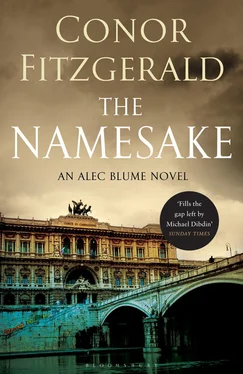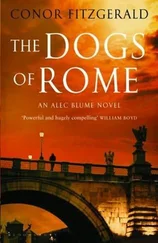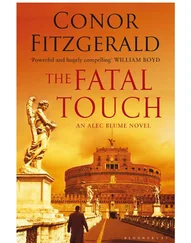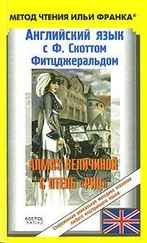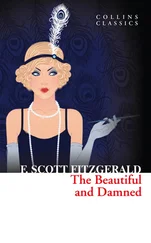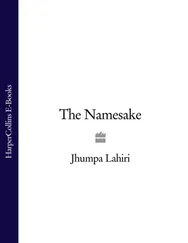Conor Fitzgerald - The Namesake
Здесь есть возможность читать онлайн «Conor Fitzgerald - The Namesake» весь текст электронной книги совершенно бесплатно (целиком полную версию без сокращений). В некоторых случаях можно слушать аудио, скачать через торрент в формате fb2 и присутствует краткое содержание. Жанр: Полицейский детектив, на английском языке. Описание произведения, (предисловие) а так же отзывы посетителей доступны на портале библиотеки ЛибКат.
- Название:The Namesake
- Автор:
- Жанр:
- Год:неизвестен
- ISBN:нет данных
- Рейтинг книги:3 / 5. Голосов: 1
-
Избранное:Добавить в избранное
- Отзывы:
-
Ваша оценка:
- 60
- 1
- 2
- 3
- 4
- 5
The Namesake: краткое содержание, описание и аннотация
Предлагаем к чтению аннотацию, описание, краткое содержание или предисловие (зависит от того, что написал сам автор книги «The Namesake»). Если вы не нашли необходимую информацию о книге — напишите в комментариях, мы постараемся отыскать её.
The Namesake — читать онлайн бесплатно полную книгу (весь текст) целиком
Ниже представлен текст книги, разбитый по страницам. Система сохранения места последней прочитанной страницы, позволяет с удобством читать онлайн бесплатно книгу «The Namesake», без необходимости каждый раз заново искать на чём Вы остановились. Поставьте закладку, и сможете в любой момент перейти на страницу, на которой закончили чтение.
Интервал:
Закладка:
‘I’m on my way,’ she said.
28
Castellammare di Stabia, Naples
Blume waited till Konrad had gone in, then, instead of parking in front, backed up and drove the camper van around to the rear and squeezed behind a semitrailer. Moving quickly, he left the cab and opened the door to the living quarters, and stomped in, lashing out with his feet at anything he thought he saw moving. He flicked on the light, but it only cast a buttery glow on a section of the ceiling, and illuminated nothing. He saw he could let in more light by opening the curtain that closed off the driver’s cab.
The rat, the size of a small cat, was attached to the curtain, perfectly motionless, its pink feet digging into the fabric. It had positioned itself right behind the passenger seat, inches from where Konrad’s head had been. Its nose was pointing up towards the ceiling, its tail swinging almost imperceptibly to and fro to offset the gentle sway of the curtain.
Hickory, dickory dock, sang Blume to himself, his eyes seeking a weapon as the animal continued to gaze upwards, pretending not to have seen him as he pretended not to have seen it.
Blume moved deeper into the camper, quietly unlocked a cupboard, and pulled out the first thing his hand touched, which turned out to be a can of insecticide. Fine. He’d use it as a baton. As he transferred it to his right hand, the rat did a 180-degree rotation, turning his nose from twelve to six. Blume, momentarily experiencing some of the horror he had seen written on Konrad’s features, launched the canister. With a casually insulting backward flip, the rat executed a somersault in the air and landed on its feet on the floor, walking rather than running out the door just as Blume’s useless aerosol hit the curtain. Blume stepped to the door, just in time to see the rat slip under the rear wheel of the camper van, very much with the air of one prepared to bide his time until the human persecutor had left.
He pulled the door to. Without the breeze, the room immediately became airless and hot. He made a very rapid survey of the camper, pausing again to look at the faded picture of the girl. Then he went over to Konrad’s two leather suitcases and lifted the larger onto the misery-inducing Formica table bolted to the floor. It was closed with a small combination padlock of the sort that could be sprung with the help of a mini-screwdriver and the sudden application of force. But he had no such screwdriver to hand. Patiently, he pulled gently on the latch, seeing which of the dials felt tightest. He zeroed it, tested again, found the third dial was now tightest, and worked at that. It took him less than two minutes to get the combination.
Sweating profusely now as the sun outside turned the camper into a Dutch oven, Blume opened the suitcase. As expected, Konrad’s clothes were neatly folded and separated by type. Blume stood back and looked carefully at the contents, studying patterns, memorizing the order. Then he started taking out the clothes item by item and running his hand over each.
He had to open the door for air. He glanced down at the wheel, seeing nothing. ‘Hey, rat?’ he called. ‘Want to climb in here, make a nest in Hoffmann’s underpants?’
Comforted by the breeze, he returned to his task of feeling his way through the contents, stroking the silky lining of the suitcase with the back of his hand. He double-checked to see if he had missed anything in the front pocket, then set about putting everything back. The second suitcase had the same combination as the first.
The contents here proved more interesting. He immediately found a notebook, with an expensive vellum cover. Inside were neat handwritten notes, all in German. It would take him too long to work out the meanings. He could make out some words, Ehrenabzeichen, Geschaftsfreund, Kontaktperson, Rache. Hoffmann also had some headed paper with the lettering BKA and the black eagle symbol, but the sheets were blank. Below some neatly folded shirts, he found a sheaf of papers held together by spiral binding. There had to be eighty sheets at least and, Blume noted, many of them were in Italian. He glanced quickly through, and saw they referred to the Ndrangheta. He caught some names of major families and that of a heroic magistrate Nicola Gratteri, who was one of the leading experts on the organization. Blume hesitated, then decided to transfer the entire document into his own suitcase. It meant Konrad would find out about this in an hour or two when he went to unpack his bags, but that was fine.
He was looking for a weapon. If Konrad had one, it had to be in here, because he was not carrying one on his person. Blume had carefully and surreptitiously checked from the first moment they had met, and had finally been able to rule out the last possibility of a concealed weapon when Konrad had lifted his feet off the floor in fear of rats, revealing that he wore brown-and-white striped socks, but no ankle holster.
He lifted out three books. One was a guidebook to ‘Kalabrien und Basilikata’, one of the more useless guidebooks crammed with glossy photos of places that, presumably, you would be seeing for yourself. He held the book by its spine and made a fan of the pages and shook, but nothing fell out. There was a novel, Selbs Betrug, again with nothing hidden inside. More interesting, but ultimately unrevealing, was a book called Mafialand Deutschland by Jurgen Roth. Konrad also had a neat little halogen penlight that Blume wasted a few seconds playing with. He reached the bottom of the suitcase without finding anything else of interest. He swiped his hand through the inside pocket, finding nothing more than what seemed to be the torn and crumpled remains of some old-fashioned postcards. One showed the ‘doors of Malta’, another was an image of an English seaside town called Brixham. Judging from the faded turquoise colour of the sea and the single brown car parked in the port, the photo dated from the 1970s. There was a ripped postcard of a caravan site in County Cork in Ireland framed by bright red fuchsia, and a close-up of the Glockenspiel at Marienplatz in Munich and another of the nearby Frauenkirche. There was nothing written on any of them. The postcards were so old that the paper formed tiny fibrous pills as he rubbed his thumb along the edges. They did not fit in with the neatly stacked clothes, the high technology, the cleanliness and order of the bags. He had an idea, which immediately crystallized into a conviction, that the camper van in which he now stood had been to those places in the distant past. These were fragments of Konrad’s memory, pieces he wanted to keep for personal reasons. Something here explained his presence in Italy.
He pulled out the last postcard, which turned out to be ripped vertically in half. He felt around for the other half, but the pocket had given up the last of its treasures. The postcard, more of a holy keepsake, was of the type religious people bought in churches. It showed a vaulted ceiling, a side chapel, a Madonna with a massive crown on her head and the beginnings of a second crown, presumably on the head of the Christ child in her arms. The vertical tear obliterated the rest. But Blume recognized it at once. It was an image of the Madonna of Polsi, also known as the Madonna of the Mountains, the goddess of the Ndrangheta. This was the very Madonna that the bosses lifted on their shoulders and paraded through the steep streets of the village clinging to the sides of Aspromonte. He turned the card over and saw it was signed in a careful childish hand with rounded large characters: Domenico Megale.
Old Megale wrote like a five-year-old. If that was his signature. Blume looked closely at it, bringing it over to the door to get more light. The glistening of the ink, its fresh darkness on the old paper convinced him that Domenico Megale, or someone purporting to be him, had signed the back of this torn Madonna recently. Either Konrad was such a fan of the Mafia boss that he carried around his autograph, or this had some specific purpose. It had to be Konrad’s passport to somewhere, he reasoned. It certified that Konrad was to be allowed to enter somewhere, or was a man to trust. Someone else held the other half of the image, so they could check this was authentic.
Читать дальшеИнтервал:
Закладка:
Похожие книги на «The Namesake»
Представляем Вашему вниманию похожие книги на «The Namesake» списком для выбора. Мы отобрали схожую по названию и смыслу литературу в надежде предоставить читателям больше вариантов отыскать новые, интересные, ещё непрочитанные произведения.
Обсуждение, отзывы о книге «The Namesake» и просто собственные мнения читателей. Оставьте ваши комментарии, напишите, что Вы думаете о произведении, его смысле или главных героях. Укажите что конкретно понравилось, а что нет, и почему Вы так считаете.
